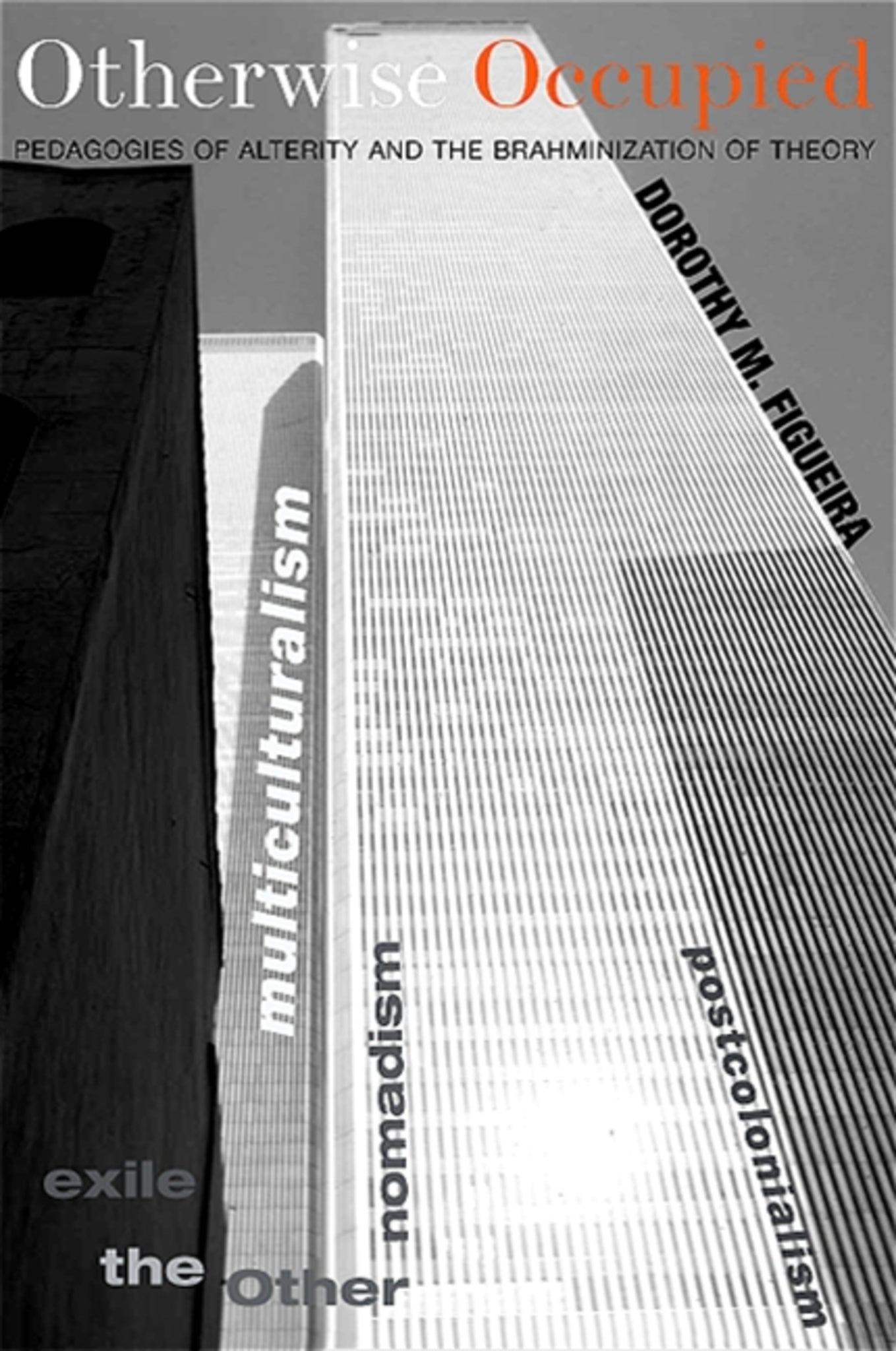We're sorry. An error has occurred
Please cancel or retry.
Otherwise Occupied

Some error occured while loading the Quick View. Please close the Quick View and try reloading the page.
Couldn't load pickup availability
- Format:
-
06 November 2008

Questions whether current theories and pedagogies of alterity have allowed us truly to engage the Other.
Tracing the historical development of recent identity-based trends in literary theory to their roots in structuralism, Dorothy M. Figueira questions the extent to which theories and pedagogies of alterity have actually enabled us to engage the Other. She tracks academic attempts to deal with alterity from their inception in critical thought in the 1960s to the present. Focusing on multiculturalism and postcolonialism as professional and institutional practices, Figueira examines how such theories and pedagogies informed the academic and public discourse regarding September 11. She also investigates the theories and pedagogies of alterity as crucial elements in the bureaucratization of diversity within academe and discusses their impact on affirmative action.


"…a forceful polemic against some of the major intellectual strands within the 'theory' revolution of the last thirty years." — Literary Research
"This book bespeaks an extraordinarily broad and penetrating understanding of contemporary literary theory in the usual sense, but far more importantly, it presents an extremely clear, lucid, and compelling analysis of its political implications for the classroom, the department, the university as an educational institution, and the body politic of the United States in general. It is not only a courageous investigation and critique of the political positions but also a ringing condemnation of the disingenuous and ultimately shallow and superficial appropriation of the mantle of multiculturalism, trans-culturalism, and similar specialties by monolingual members of academe whose experience outside of the received environment is at best secondhand and all too often condescending and patronizing." — Steven P. Sondrup, Brigham Young University
Acknowledgments
Introduction
1. Critical Background to Postructuralist Theories and Pedagogies of Alterity
2. Multiculturalism
Simulated Battles
The Institutionalization of Multiculturalism
The Methodology of Multiculturalism
Marketing the Margin
Masking the Metanarrative of Race
3. Postcolonial Criticism and Identitarian Politics
Definitions and the Scope of Postcolonial Criticism
History and Postcolonial Subjectivity
The Postcolonial Critic
The Repressive Allure of Postcolonial Criticism
4. The Brahminization of Theory: Commodity Fetishism and False Consciousness
Introduction
Postcolonial Criticism’s Disciplinary Roots
Commodifying Postcolonial Theory and Type-Casting the Critic
False Consciousness
Commodity Fetishism and Brahminization
5. The Romance of Exile
Introduction
Spokespersonship
The Exile
The Nomad
A Wand’ring Minstrel I, A Thing of Shreds and Patches
6. Occidentalism
Theory Confronts Reality
Rhetoric
The Fallaci Affair
Final Beliefs
7. Gestures of Inclusion
Introduction
Positive Discrimination in India
Affirmative Action in the United States
Cosmetic Enhancement
Conclusion: The Collecting of the Other
Notes
Bibliography
Index



